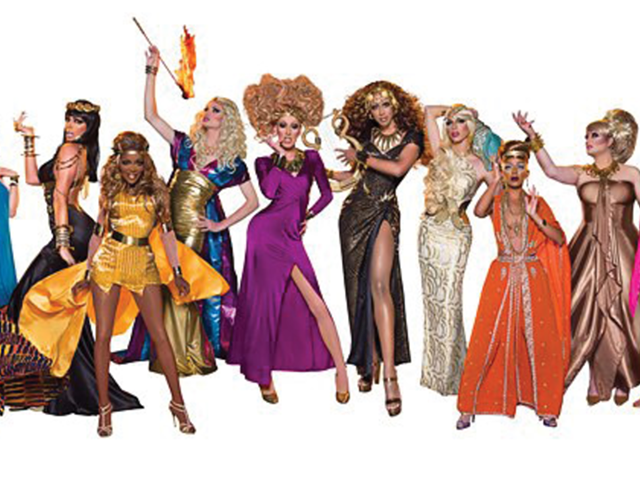Critic's Pick
Broadway is not known for originality in the 21st century: Shows seldom make it unless they’re a sure bet, based on familiar movies or music by performers (ABBA, Elvis, The Four Seasons) whose tunes are already known. So the musical Memphis is something of an anomaly. The 2010 Tony Award winner for best musical is loosely based on the story of a white disc jockey who crossed the color line and played black music on the radio in the racially divided Tennessee city. Memphis is on tour and spending two weeks in Cincinnati at the Aronoff Center, and it’s a story worth witnessing.
The promo line for Memphis captures the essence: “His vision. Her voice. The birth of Rock ‘n’ Roll.” Huey Calhoun (Bryan Fenkart) has the vision, and Felicia Farrell (Felicia Boswell) has the voice. He’s white, she’s black. It’s the 1950s, and what begins as his admiration for her singing becomes very complicated when love enters in — at a time when such lines were not to be crossed. But the tale of their romance runs parallel to the rising popularity of “Negro music” that laid the foundation for the early days of Rock.
Calhoun uses his motor-mouthed weirdness (which Fenkart delivers in a high-energy, oddball performance) to land a job at a radio station. He’s met Felicia in a club (Boswell has the glorious vocal presence of Diana Ross and the power of Tina Turner) run by her protective brother Delray (Horace V. Rogers), and he advances her career. He’s naïve about what it means to be crossing the racial divide; she’s guarded, but sees the opportunity for broader awareness he can offer, and she comes to be charmed by his enthusiasm for her and his devotion to her abilities.
Memphis does not use music from the period; however, the show’s tunes, composed by David Bryan, with lyrics by him and Joe DiPietro — with titles like “Scratch My Itch” and “Ain’t Nothin’ but a Kiss” — completely capture the essence of the era. When Huey’s radio fame reaches its zenith, he parlays it into a local TV talent show, and that provides a clever showcase for the black dance talents. Memphis’s entire cast, black and white, is populated by athletic dancers, but they’re especially on display in the second act numbers that are captured live by the big TV cameras of the era and placed above the action on a black-and-white screen above the action. It adds to the flavor of the piece, as does David Gallo’s set that conveys Delray’s underground club, the claustrophobic radio studio, a few modest apartments and then some glamorous performance venues. (Gallo, a Tony Award-winning designer, has created many sets for the Cincinnati Playhouse.)
The cast of Memphis has talent beyond Fenkart and Boswell. Rhett George plays Gator, a friend who has been mute since seeing his father lynched, is moved to speech — and song, “Say a Prayer” — by a hateful beating at the end of the first act. Following intermission, Bobby (Will Mann), a shy, chubby janitor at the radio station, is pushed into the limelight and becomes a dancing machine, “Big Love.” As Huey’s mother, transformed by his success from a haggard racist to a spruced-up opportunist, has a powerful vocal moment when she testifies with “Change Don’t Come Easy.”
Memphis is an excellent example of how musical theater can treat a serious subject. There’s a satisfying, if not happy, ending that conveys hope for a future when the line between black and white won’t mean so much.
MEMPHIS, presented by Broadway in Cincinnati, continues through Feb. 3.






